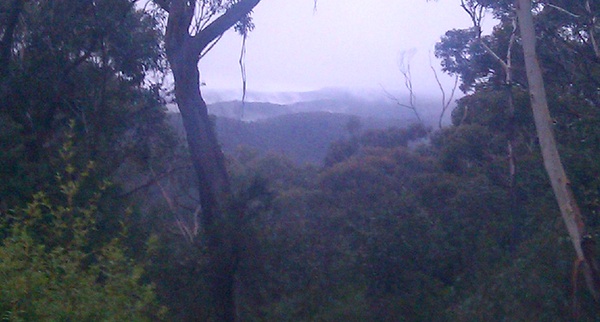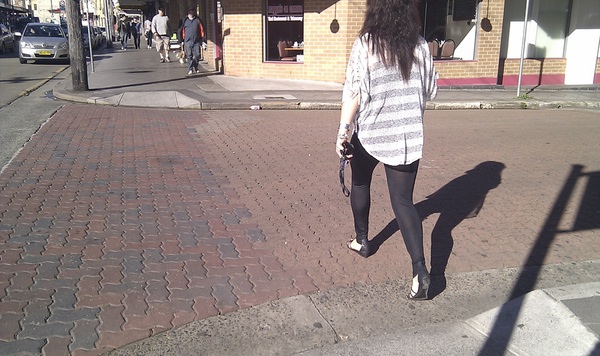A weekly summary of what I’ve been doing elsewhere on the internets. It was another massive week of writing this week, including a trip to Melbourne.
Continue reading “Weekly Wrap 60: Media whoredom continues”Weekly Wrap 56
A weekly summary of what I’ve been doing elsewhere on the internets. Last week was busy enough, but this week was even busier. Something’s gotta give.
Podcasts
- Patch Monday episode 94, “ISP filtering goes ‘voluntary'”. Even though Australia’s controversial mandatory internet filtering program is at least two years away from being implemented, internet service providers will soon start filtering child exploitation material on a voluntary basis. My guests are Peter Black, who teaches internet and media law at the Queensland University of Technology; Network engineer Mark Newton; Lyle Shelton, chief of staff of the Australian Christian Lobby.
Articles
- The only NBN monopoly seems to be on ignorance, for ABC Drum Opinion. My response to opponents of the National Broadband Network claiming that it’ll destroy competition in the telecommunications industry.
- Internet filtering isn’t compulsory, but everyone will volunteer, for Crikey, covering the recent news the “voluntary” of filtering of the internet will soon begin in Australia, covering child exploitation material only.
- Voluntary filtering removes the controversy, for CSO. In this op-ed I explain how the voluntary filtering makes sense technically and politically, if not necessarily for effective child protection.
- Drug spam rules, thanks to WikiPharmacy: Symantec, for CSO. It’s a shame I didn’t notice that my headline is a crash blossom.
- If Facebook killed Myspace will Google+ kill THE social network? Crikey. At rather short notice, when I’d already been up very early to wrote two other articles, I was asked to write a piece covering the news of both Google launching Google+ and Myspace being sold for UD 35 million and how that’d affect Facebook. This is what resulted.
- Interpol blacklist goes live in Canberra, for ZDNet Australia. “Voluntary” internet filtering started on Friday.
Media Appearances
Two radio spots this week, and a guest appearance on someone else’s podcast.
- On Wednesday I spoke with ABC Gold Coast about Google+ and how it’ll affect Facebook. There’s audio at the link.
- On Thursday I was talking about information security for business on Phil Dobbie’s BTalk podcast.
- On Friday I was talking about Myspace, Google+ and Facebook on ABC 774 Melbourne. Again, there’s audio at the link.
Corporate Largesse
None. I am reliably informed that the drought will be broken next week.
Elsewhere
Most of my day-to-day observations are on my high-volume Twitter stream, and random photos and other observations turn up on my Posterous stream. The photos also appear on Flickr, where I eventually add geolocation data and tags.
[Photo: A misty dawn at Bunjaree Cottages, 1 July 2011. This is the view from Roselle Cottage, not normally rented to the punters. The much-battered camera in my phone does not do this scene justice.]
Patch Monday: ISP filtering goes ‘voluntary’, plus updates
Australia’s mandatory internet filter is at least two years away, but Telstra and Optus are only weeks from implementing their “voluntary” equivalents. Where are we up to with this controversial issue?
That’s what I covered in yesterday’s Patch Monday podcast for ZDNet Australia. And as I explained on the weekend, I’m returning to my habit of doing a blog post here for each episode.
For this internet filtering update, I spoke with Peter Black, who teaches internet and media law at the Queensland University of Technology; network engineer Mark Newton; and Lyle Shelton, chief of staff for the Australian Christian Lobby.
You can listen below. But it’s probably better for my stats if you listen at ZDNet Australia or subscribe to the RSS feed or subscribe in iTunes.
Since this podcast was recorded, we’ve discovered that Primus isn’t so sure about voluntary filtering any more. They were the third ISP to commit to the plan last year. However the Internet Industry Association (IIA) has said most Australian ISPs will filter via the Interpol list this year.
Previous podcast on this issue covered the meaning of the Refused Classification content category, Senator Conroy’s announcement of the strategy in July 2010, and the apparent fact that parents don’t act on their cybersafety fears.
Please let me know what you think. Comments below. We accept audio comments too. Either Skype to stilgherrian or phone Sydney +61 2 8011 3733.
Weekly Wrap 10 and 11
A weekly summary of what I’ve been doing elsewhere on the internets. Well, a fortnightly summary today, because I forgot to do a post like this last week. Sigh.
Actually, a lot of this relates to the federal election here in Australia, so you’d better digest it all now before you vote today. Hurry up!
Articles
- The broadband battle: what will they really deliver? for Crikey, explaining the two rather different broadband policies on offer in today’s election from Labor and the Liberal-National Coalition.
- Coalition broadband: a wireless tower in every street for Crikey, quoting some material from the Patch Monday podcast about how wireless broadband works and what it would require to deliver fibre-equivalent services via wireless.
Podcasts
- Patch Monday episode 52, “Media laws dying for digital update” with guest Peter Black from the Queensland University of Technology.
- Patch Monday episode 53, “Understanding the broadband election” with guest Narelle Clark, a network engineering consultant who’s most recent gig was as research director of the CSIRO’s Networking Technologies Laboratory. She’s also vice-president of the Internet Society of Australia and on the board of trustees for the Internet Society globally.
- A Series of Tubes episode 115. Host Richard Chirgwin talks with Anup Changaroth of Ciena Networks about gigabit fibre networks, the product life cycle, and the value of Layer 2 carrier networks, and me about broadband policy.
Media Appearances
- Talking Twitter and the election on Syn Radio.
- Email is dead, what next?, the TechLines webcast in which I’m on-screen for about a minute as I ask a question near the end of the program.
[Photo: Tights are not pants, Enmore Road. Further proof, Ladies, that tights are indeed not pants. Not even if you’re also wearing heels.]
Weekly Wrap 6
A weekly summary of what I’ve been doing elsewhere on the internets.
Articles
- Crikey Clarifier: What is cloud computing? for Crikey. They needed a quick overview of the whole concept, given that it blipped up in the Australian Financial Review as the Next Big Thing.
Podcasts
- Patch Monday episode 48 in which I chat about “Conroy’s filter masterstroke”. With an election due to be announced today, Senator Stephen Conroy, Minister for Broadband, Communications and the Digital Economy, has I think succeeded in taking the toxic topic of ISP-level internet filtering off the table by announcing a comprehensive review of the Refused Classification category. I chat through the implications with Peter Black, who teaches internet law at the Queensland University of Technology.
- The interview I recorded last week for A Series of Tubes will be scrapped, as events have moved on. There will be an episode next week, ‘cos we’ve booked a recording session for Tuesday morning.
[Photo: “Blurry at Museum station“, Sydney, taken on 14 July 2010.]
Patch Monday: iiNet: The whys and what nows
The iiNet decision was clearly the biggest IT news story last week, so this week’s Patch Monday podcast includes a comprehensive explanation.
My special guest is Peter Black, who teaches internet law at the Queensland University of Technology. But before you get to listen to him, you can endure my summary of Justice Dennis Cowdroy’s full decision.
You can listen below. But it’s probably better for my stats if you listen at ZDNet Australia or subscribe to the RSS feed or subscribe in iTunes.
Please, let me know what you think. We now accept audio comments too. Either Skype to “stilgherrian” or phone Sydney 02 8011 3733.




